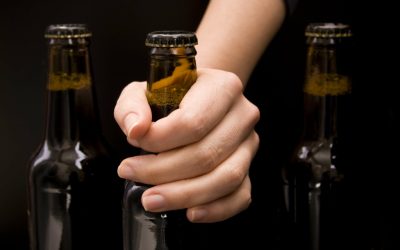Alcohol, Aggression, and Violence: From Public Health to Neuroscience
Content
- Brain structural correlates of aggression types from the perspective of disinhibition–control: A voxel-based morphometric study
- How do alcohol use disorders affect people?
- Personality and the Propensity to Become Aggressive When Intoxicated
- Sober Living
- What to do if you say hurtful things you can’t remember when drunk:
- Ways Quitting Drinking Affects Your Brain
The good news is that by quitting alcohol, even those who have spent years throwing off the balance of their brains can begin to heal and restore the brain’s natural function. https://ecosoberhouse.com/ Our Alumni express the experience, strength and hope we share for future generations to come. Renewal Lodge treats adult men and women in a dual diagnosis setting.

More research is needed on the neural mechanisms responsible for sober and intoxicated aggression. Another example of a common cause relates to the frequent co-occurrence of antisocial personality disorder and early-onset (i.e., type II) alcoholism . ASPD is a psychiatric disorder characterized by a disregard for the rights of others, often manifested as a violent or criminal lifestyle. Type II alcoholism is characterized by high heritability from father to son; early onset of alcoholism ; and antisocial, sometimes violent, behavioral traits . Type II alcoholics and persons with ASPD overlap in their tendency to violence and excessive alcohol consumption and may share a genetic basis . To date, very few studies have tested the gender difference hypothesis using both the male and female subjects.
Brain structural correlates of aggression types from the perspective of disinhibition–control: A voxel-based morphometric study
During this time, individuals may experience withdrawal symptoms such as anxiety, tremors, and seizures. Medically supervised detoxification can help manage these symptoms and ensure a safe and successful recovery. Some children of alcoholics may cope by taking the role of responsible “parents” within the family and among friends. They may become controlled, successful “overachievers” throughout school, and at the same time be emotionally isolated from other children and teachers. Their emotional problems may show only when they become adults.
Those who don’t think about the consequences of their actions are more likely to adversely affect themselves and others. Additionally, when you don’t reflect on mistakes you’ve made, you’ll probably repeat them. Verywell Mind uses only high-quality sources, including peer-reviewed studies, to support the facts within our articles.
How do alcohol use disorders affect people?
“We believe alcohol disrupts cognitive functioning, making us unable to look at different problem-solving options,” Parrot suggests. Aggressive behavior and physiological arousal as a function of provocation and the tendency to inhibit aggression. Canadian Journal of Behavioural Science/Revue canadienne des sciences du comportement, 12, 141–158. Emotional reactivity to threat modulates activity in mentalizing network during aggression. Alcohol and aggression without consumption alcohol cues, aggressive thoughts, and hostile perception bias. Achterberg, M., van Duijvenvoorde, A. C., Bakermans-Kranenburg, M. J., & Crone, E. A.
Do people’s true feelings come out when drunk?
Popular wisdom holds that our true desires and feelings tend to come to light while we're drunk. Although drinking alcohol can definitely lower your inhibitions, there's no evidence to suggest that alcohol necessarily unlocks any deep-seated feelings or desires.
Participants were asked to abstain from eating, consuming caffeine, or exercising 2 hours prior to the experiment and drinking alcohol 24 hours prior to the experiment. Further exclusion criteria included endocrine, metabolic or immune disorders, and cancer, smoking, and regular recreational drug use. alcohol and anger We set these exclusion criteria because we also assessed salivary hormones, which were not analyzed. Alcohol use disorder is one of the leading causes of the global burden of disease and injury , despite the continuous discovery of novel pharmacotherapeutic agents (Pakri Mohamed et al., 2018).
Personality and the Propensity to Become Aggressive When Intoxicated
Depression – The child feels lonely and helpless to change the situation. The Greek theory of personality appears to gain the most traction. An abundance of alcohol can lead to alcohol poisoning or even lethal overdose.


